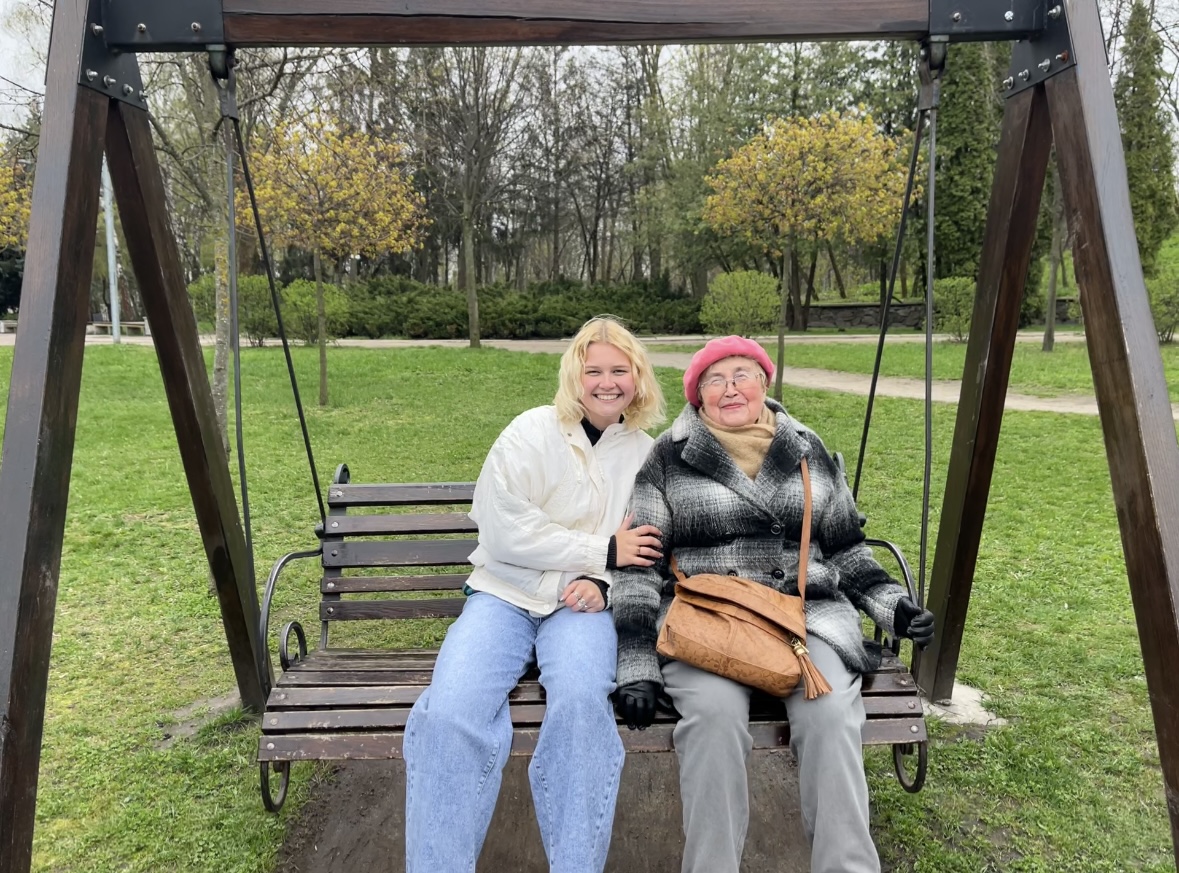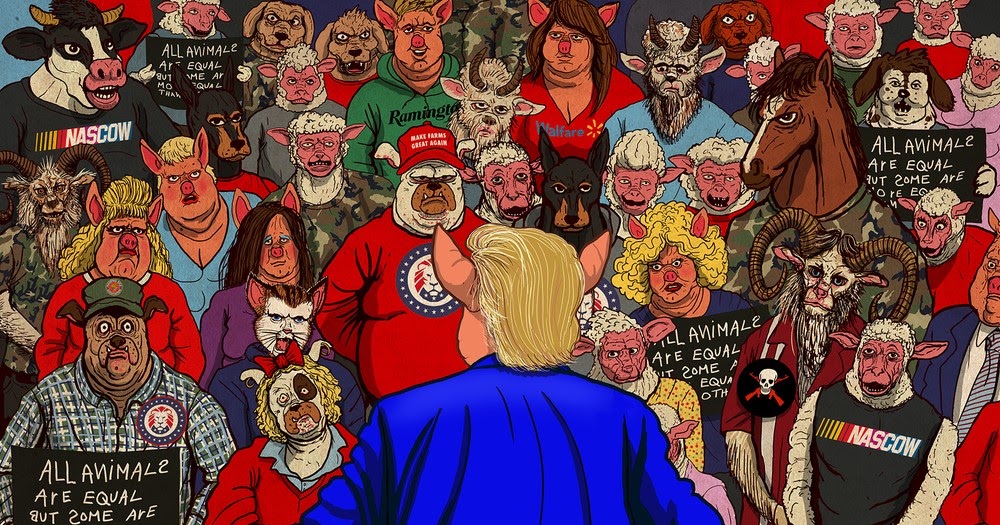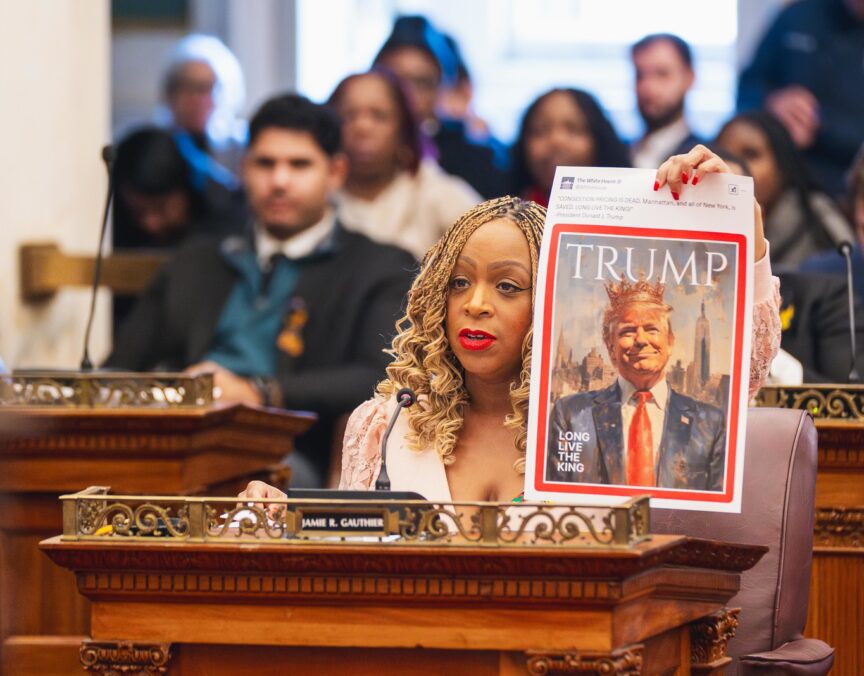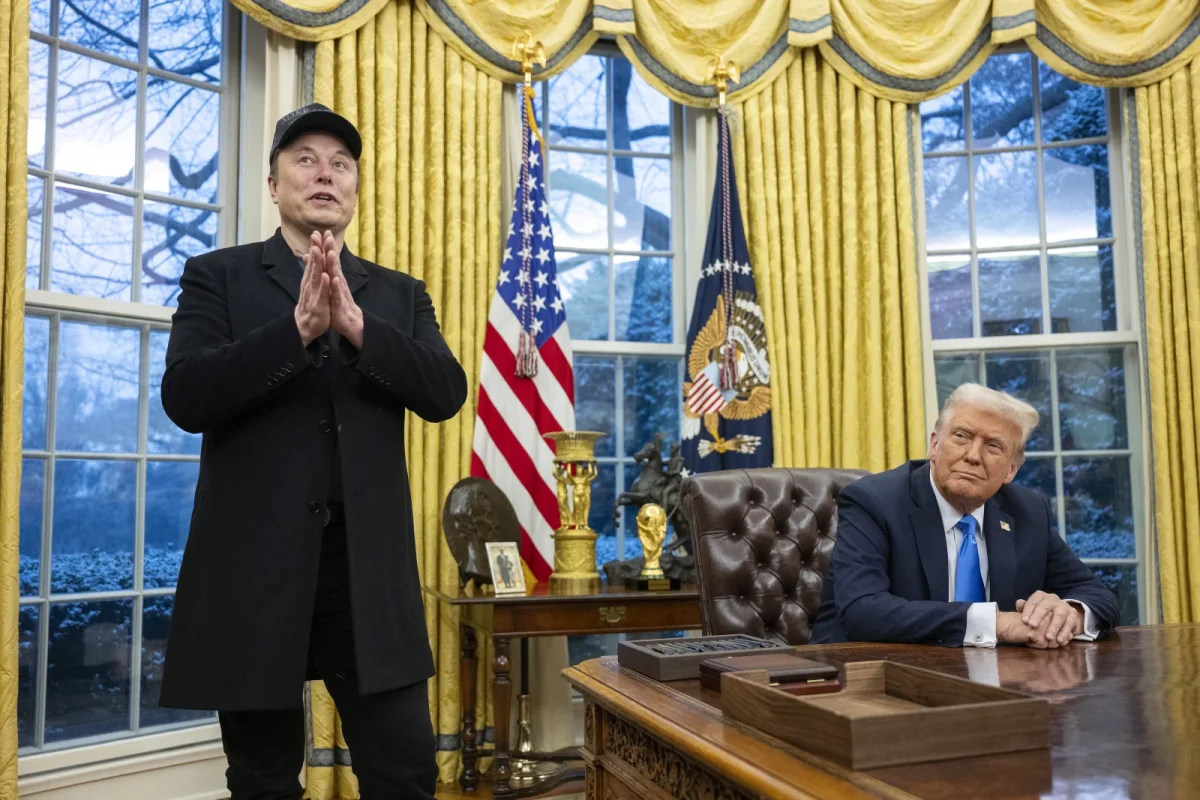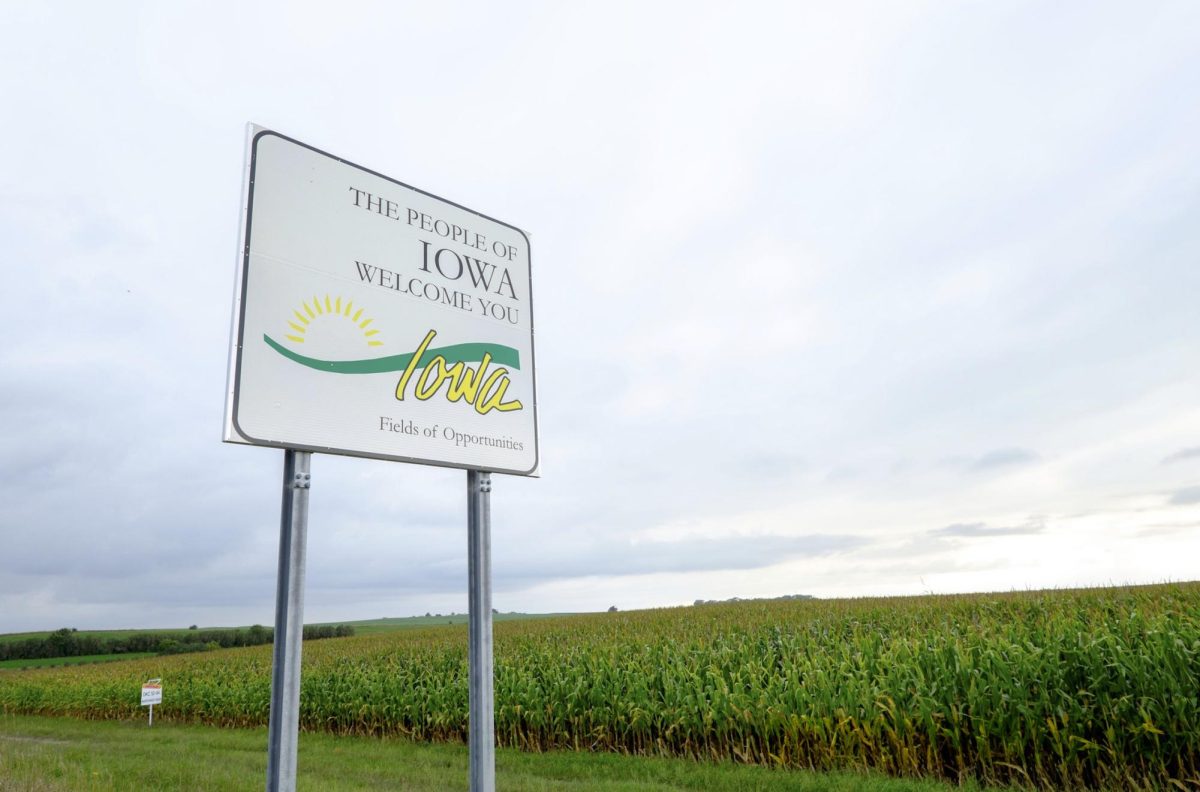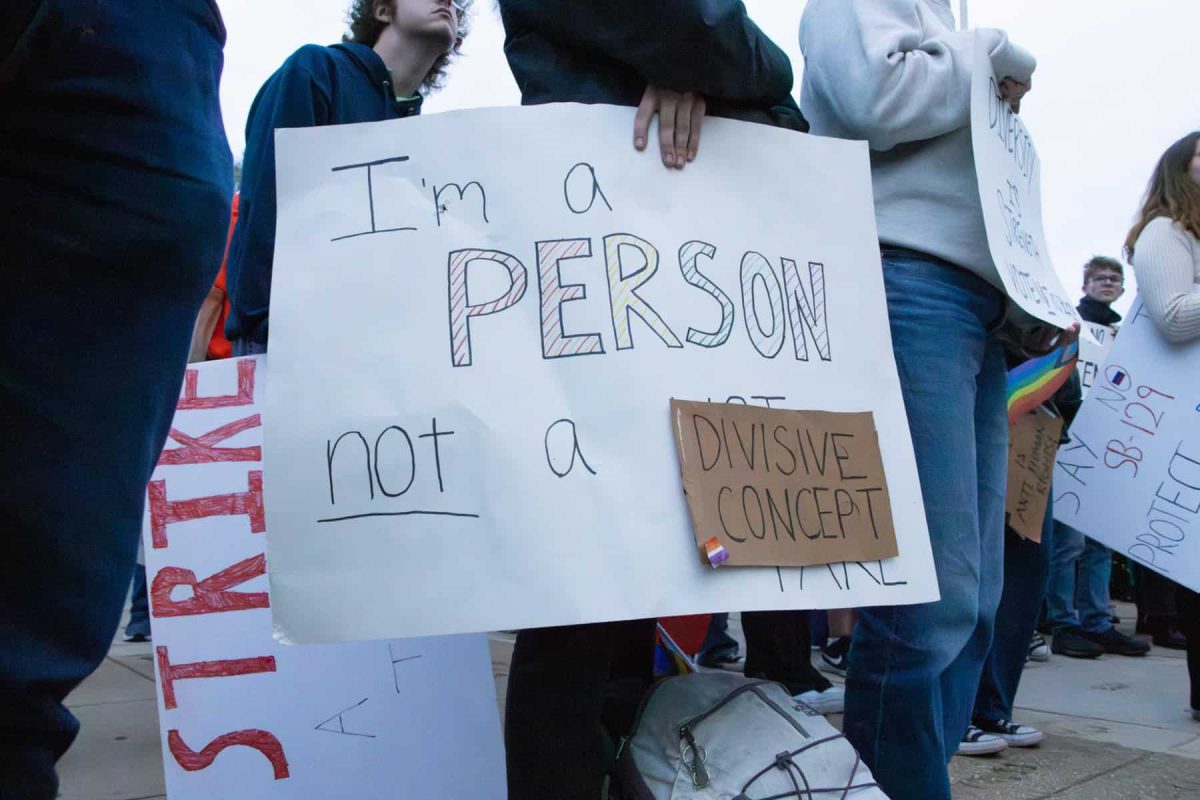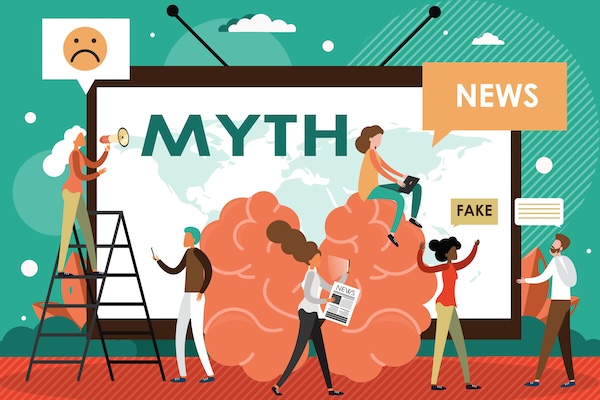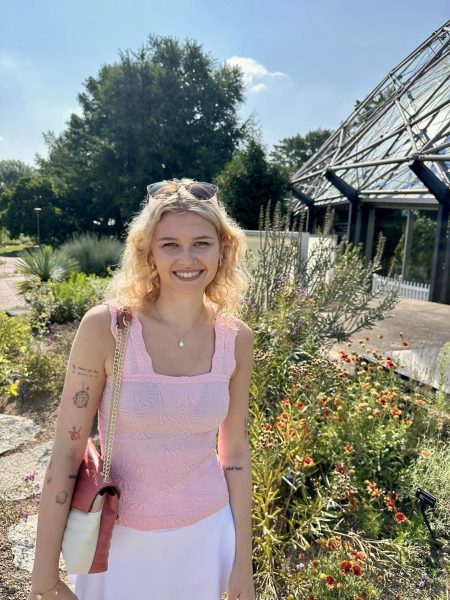My great-grandmother was afraid of storms her whole life. I used to laugh about it when I was young, thinking it was silly. It was just thunder; what was there for a grown-up to be scared of? Only later did I realize those sounds brought her back to her childhood — that every time it stormed she would hear bomber jets. War came to her homeland again, in 2014 and 2022. My great-grandmother survived a world war, but those horrors never let her go. She was afraid until the day she died.
I was born in Cherkasy, Ukraine, in 2003, 11 years before Russia forcefully annexed Crimea, Ukraine, and 19 years before the full-fledged invasion. When Russia invaded Crimea in 2014, I cried in sixth-grade social studies class because we watched a CNN video about it. I stepped out of class, and my teacher followed me to check in, saying she understood this was a sensitive situation. I told her the war scared me, and she told me there was no war. I felt angry — there were foreign soldiers killing people in my country.
Feb. 24, 2022, is a day I will never forget. For weeks beforehand, my anxiety grew as both Ukrainian and American news outlets reported on the thousands of Russian troops gathering near the border. Every day, I feared the worst would come. That day, it did. My mom called, her voice cracking through the phone. She looked like she had been crying for hours. “Mariya, they’re bombing Kyiv… I don’t know what will happen,” she sobbed. I had never heard her sound so scared.
Russia violated the Budapest Memorandum when it launched a full-scale invasion of Ukraine. This treaty and many other international agreements were supposed to guarantee Ukraine’s sovereignty and protection in case of attack. Russia not only attacked a sovereign nation but also undermined the very foundation of international diplomacy and trust.
‘Full-scale invasion,’ the New York Times alerted me while I frantically tried to call my grandparents to make sure they were okay. When my grandmother finally answered, her voice was faint. “We’re okay for now, but the air raid sirens just went off again,” she told me. I could feel the distance between us more than ever before.
Russia launched a simultaneous ground and air attack, the largest on a European country since World War II. I did not notice the tears flowing down my face until I saw my reflection. I looked like a ghost, and I felt completely numb.
There is no way to prepare for something like this. I went through the motions — class, lunch, conversations — but it all felt fake. My world had just stopped. I ran on autopilot for weeks. I will never be the same person I was before the invasion. Some days, I still have panic attacks when I think about it.
The relentless bombings and shellings that followed have taken the lives of over 70,000 Ukrainians and left between 100,000 and 120,000 wounded. More than 10,000 of these casualties are civilians — ordinary people whose lives were brutally cut short. Each number represents a stolen future, mothers, fathers and children whose lives could have been filled with dreams and joy. These are not just casualties of war — they are fragments of the world I was born into, erased forever.
There are so many children in Ukraine right now who will grow up afraid, just like my grandmother. Air raid warning sirens ring out every night in many regions of Ukraine, marking a new generation’s trauma. They will be haunted by these sounds long after the war ends.
I moved to the United States at the age of six, and I have many fond memories of my early childhood in Ukraine. I did not grow up afraid. My mother used to take me to Crimea every summer for vacation. I remember the beautiful beaches and befriending the resort owner’s daughter. Together we would look for tide pools and hold snail races, thinking we would do this every summer, forever. They are now incredibly bittersweet with the knowledge that no Ukrainian child can experience what I did all those years ago because their childhood is being stolen from them.
So many everyday people have taken up the cause to help their country in whatever way they can, like my mom’s close friend and former magazine editor, Helen Hudz. She leads volunteer efforts in her community for the third year to gather money and supplies for the war efforts. Sometimes, Hudz doubts if she made the wrong choice by choosing not to evacuate her family. “My daughter, Solomia, is six years old, and now for half of her life all she has known is war,” she stated.
The war has weighed incredibly heavily on my heart these last three years. My mom and I cannot talk about what is happening in our homeland without both of us breaking down into tears. “There is not a single family that doesn’t have someone who’s at the front, someone who died. Everyone is affected, every single person,” she said, and I could see the sorrow in her eyes when she thought of all the stories she had heard, all the people who died.
Even though I live thousands of miles away, I feel a deep connection to my homeland. I think of the summers spent with my grandparents, the scent of freshly cooked varenyky filling their kitchen, and the vibrant blue and yellow flags lining the streets during Independence Day celebrations.
Now, I watch videos of those same streets reduced to rubble, destroyed by Russian attacks. But amidst the destruction, there is resilience. Ukrainians have a strong, unbreakable spirit, which is one of the many things this brutal war has highlighted. The country has come together in ways that fill my heart with hope and pride.
Hudz discussed the wavering international support and explained that the same phenomenon is occurring within Ukraine’s borders, as well. People are tired of hearing about the war, tired of donating and helping, and most of all, tired of living it. “You need to be your own hope. When everything feels hopeless, I have to believe in myself,” Hudz said.
It has been nearly three years of war. The Russian army targets museums, hospitals and kindergartens. On Oct. 23, a Russian attack decimated a Cherkasy bus station that I used when I visited my great-grandma. Yet, much too often, I have to remind the people I come across in my everyday life that the war is still happening.
Americans have the privilege and luxury of forgetting, but Ukrainians do not. They cannot forget about the rockets or drones flying overhead and being shot down over their cities. They cannot forget about the husbands, sons, daughters and wives who have perished to protect our nation, nor about those who are currently fighting for their lives.
Artur Dron is a soldier in the Ukrainian National Army and an internationally recognized poet. He is also a 24-year-old journalism major from a small town in the Ivano-Frankivsk Oblast. Dron lived a normal life before enlisting in 2022 — he finished his bachelor’s degree, wrote poetry and worked at his dream job as an event manager at Old Lion Publishing House, one of Ukraine’s largest publishing houses, building connections with Ukrainian authors.
I got to know him when he collaborated with my mom and contributed poetry for one of her books. He has been on the front lines ever since, fighting for his country and writing earth-shattering poems about the war. The poet discussed the toll of the war and the importance of aid and support.
He also highlighted that a large part of the Ukrainian army is made up of volunteers, people who had never expected to be soldiers before 2022. Dron emphasizes, “It is a war of ordinary people, ordinary people take part in it, fight and die. Just like ordinary Americans, with the same life goals and dreams. But in order to afford such an ordinary life, we now have to pay a huge price.”
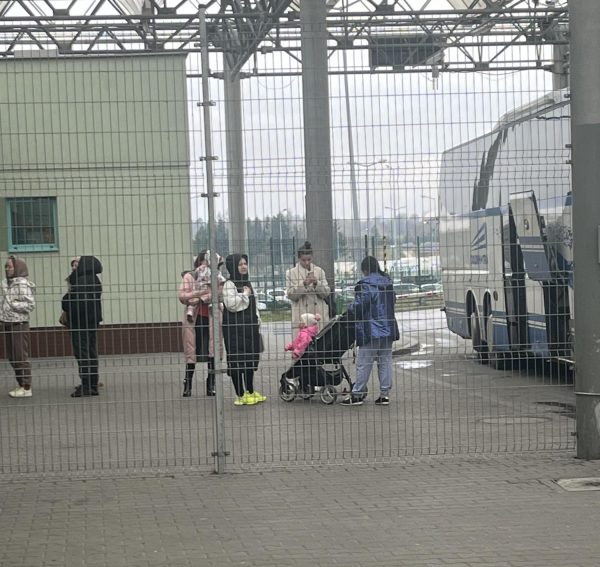
 The Ukraine-Russia war is so much more than a battle for territory — it is a fight for sovereignty, democracy and justice, but most importantly it is a struggle for the survival of the Ukrainian people to exist as a nation. During the current election cycle, the topic has been a major point of discussion. Candidates debate the role of the U.S. in providing aid and support to Ukraine, with Democrats arguing that America has a moral obligation to defend Ukraine, while Republicans largely question the financial cost of such involvement and say that America has already poured too much money into this war. Donald Trump has made it clear that he would push Ukraine into negotiations with Russia, valuing a makeshift truce above sovereignty and actual peace.
The Ukraine-Russia war is so much more than a battle for territory — it is a fight for sovereignty, democracy and justice, but most importantly it is a struggle for the survival of the Ukrainian people to exist as a nation. During the current election cycle, the topic has been a major point of discussion. Candidates debate the role of the U.S. in providing aid and support to Ukraine, with Democrats arguing that America has a moral obligation to defend Ukraine, while Republicans largely question the financial cost of such involvement and say that America has already poured too much money into this war. Donald Trump has made it clear that he would push Ukraine into negotiations with Russia, valuing a makeshift truce above sovereignty and actual peace.
For me, this is not just a political debate; it is personal. It is about the place I was born, the people I care about and the future I see for Ukraine. I cannot stand by and silently watch my homeland be destroyed. And while I am incredibly proud of Ukraine’s resilience, I also know that we need global support to keep that fight going.
The nonprofit Nova Ukraine — which means new Ukraine — is a great project to donate to or get involved with. Since 2014, Nova Ukraine has run a variety of successful humanitarian projects in Ukraine. I urge everyone reading this to consider how they can help — whether through donations, advocacy or simply educating themselves and others in their lives.
The world cannot afford to turn away. Ukraine’s fight is not just its own, but a stand for democracy and freedom as we know it.
Ukrainians are strong, but no one should have to face a threat like this alone. Supporting Ukraine is not just the right thing to do, it is a stand against tyranny and for the values we all hold dear.




